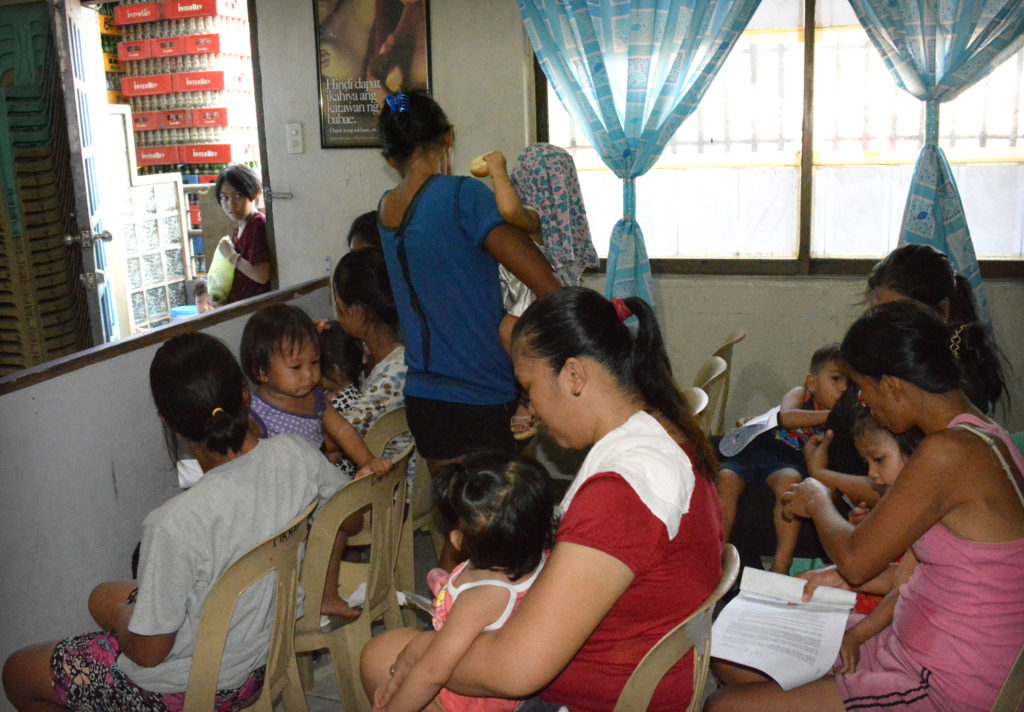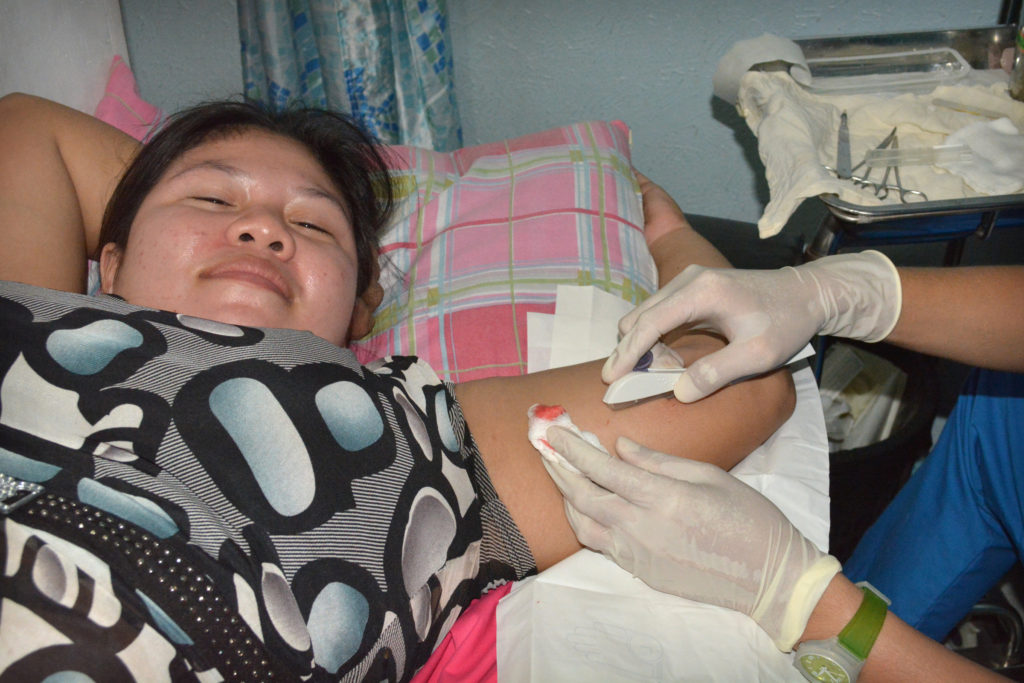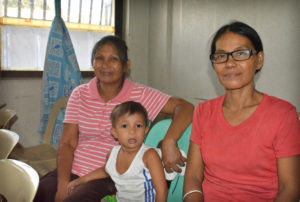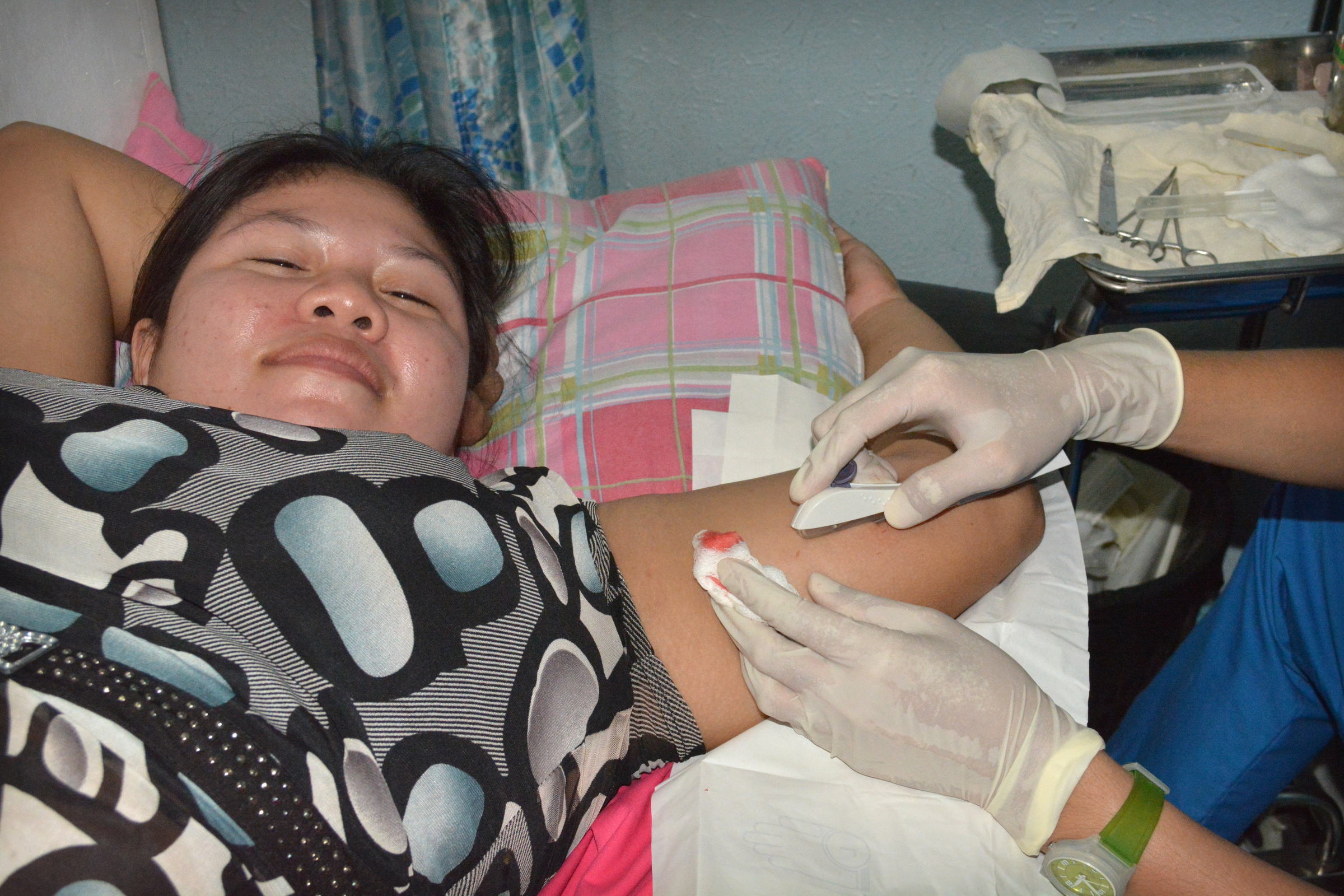
MANILA, Philippines (CNS) — More than a year after a controversial reproductive health law took effect in the Philippines, the church was mustering clergy and lay church workers to reignite the formation of the faithful with regard to family planning.
Bishop Gilbert Garcera of Daet, head of the Philippine bishops’ Commission on Family and Life, said his office wants individual Catholics to see issues or reproductive health through the practice of their faith. He told Catholic News Service that, in recent conferences with clergy and church workers, his office has been reiterating the church’s message that a Supreme Court ruling on the law allowed for conscientious objection.
Church officials have emphasized “individual or group assessment of how (Catholics) are responding to the teachings of the church” on family planning, he told CNS. “We will teach, we will remind them, but remember, we have been doing that for so long, but truly we have to consider, at what level are they (in their formation)?”
After more than a dozen years of trying to get such a law passed, the Philippines enacted the Responsible Parenthood and Reproductive Health Act of 2012, commonly called the RH Law. Many considered it a victory in a developing country that has seen population growth of 2 million per year. Among its provisions are free contraceptives for the poor.

But the Philippine Supreme Court immediately put a hold on the new law because of at least 10 legal challenges to its constitutionality. Mostly Catholic groups, opposed to a number of provisions, filed the petitions at the Supreme Court.
In 2014, the high court struck down eight provisions, but upheld the free birth control provision and numerous other sections that had been challenged.
In at least one city, Sorsogon in the Bicol region, the mayor said no government health facility is giving away artificial contraception. That was because Sorsogon Mayor Sally Lee, who calls herself a devout Catholic, proclaimed it a “pro-life” city in a February executive order.
She told CNS she was “not going against the RH law.”
“I don’t have that power to go against the government. It’s just that I’m following what God wants me to do, what God wants us to do, and it’s in harmony with nature and God, and saving life,” Lee said. “It’s about life, that is a gift from God.”
Lee said when officials with the Philippine Department of Health interviewed her, she told them her government was invoking the conscientious objector section of the law.

Investigators from the nongovernmental Likhaan Center for Women’s Health in Manila told CNS the provincial government that Sorsogon City belongs to is now distributing free contraceptives to the poor through a nongovernmental health service provider in the city.
Workers from Likhaan expressed concern that Sorsogon would end up like Manila in 2003-2009, when then-Mayor Lito Atienza declared it prolife and removed all contraception from city government health facilities. The burden of providing the service fell on nongovernmental health groups and national hospitals, which were reliant on inconsistent foreign donations of the expensive contraceptives. Many places were hard for poor residents to get to because of bus fare.
In Manila, at one Likhaan center in the deeply impoverished Tondo neighborhood, 50-year old Ninita Zamora received a year’s supply of birth control pills.
“Mothers really need family planning,” she explained to CNS. “Because it’s hard if you have to buy it, and you don’t have any money to buy it … for instance when we didn’t have it before, all my children came one after another. I couldn’t (afford) to buy it.”
Zamora, a Catholic and mother of five living in Tondo, said she was busy raising her children and could not work to help supplement the family’s income. She said she did not want to risk practicing natural family planning, which the church allows.
Dr. Gina Pardilla, a Manila city health official, said the new law has allowed for the city budget to finally allocate money for contraception for the poor.
“Once you talk to me I’ll tell you, ‘This is because of your health.’ Then you can change your mind without me attacking your sense of values or your sense of religion or even your morals. I’ll just center on your health.”







